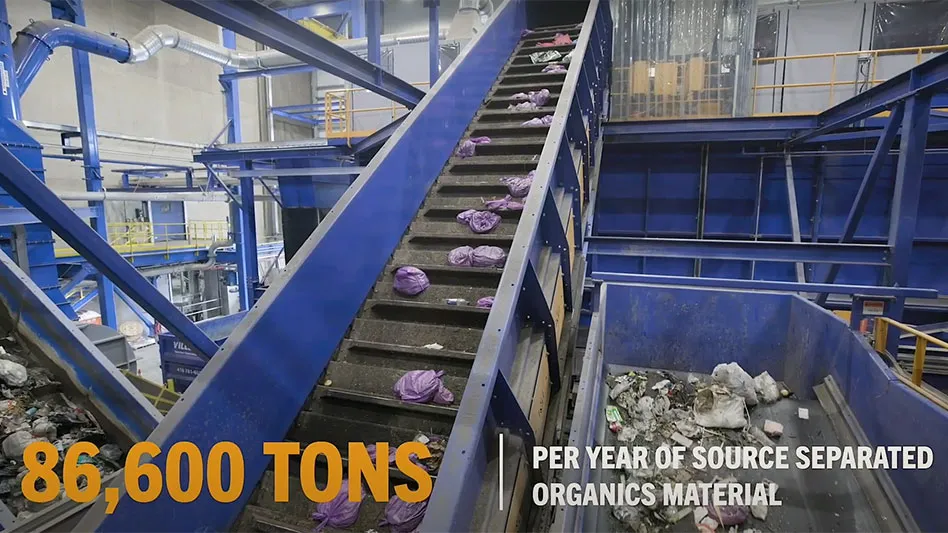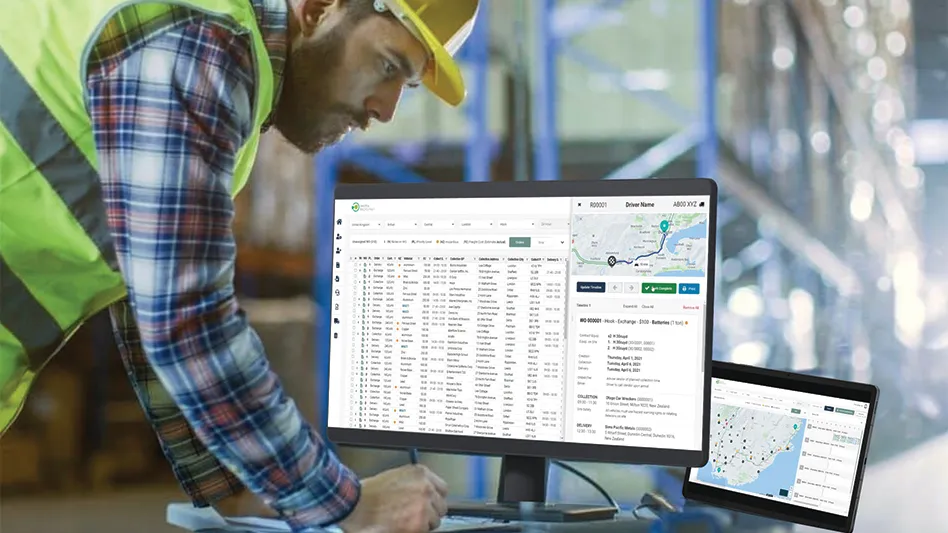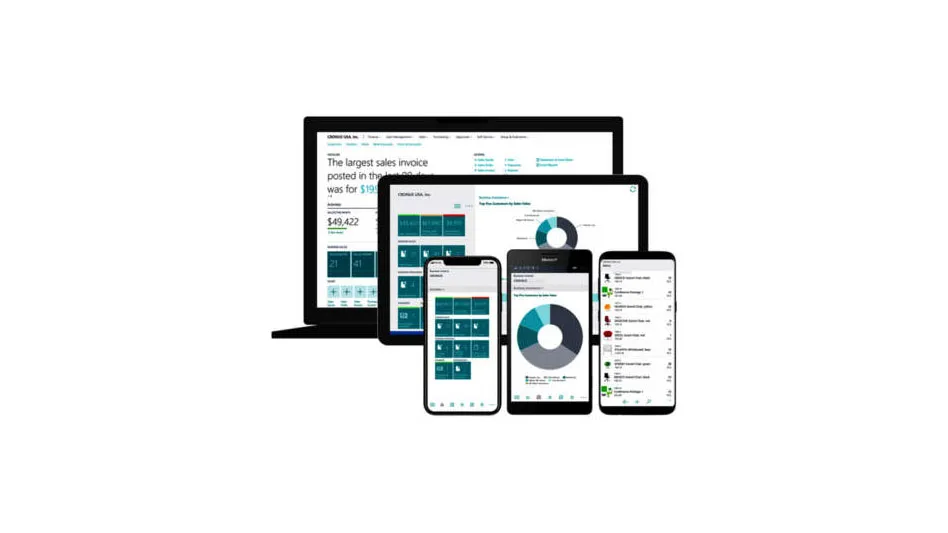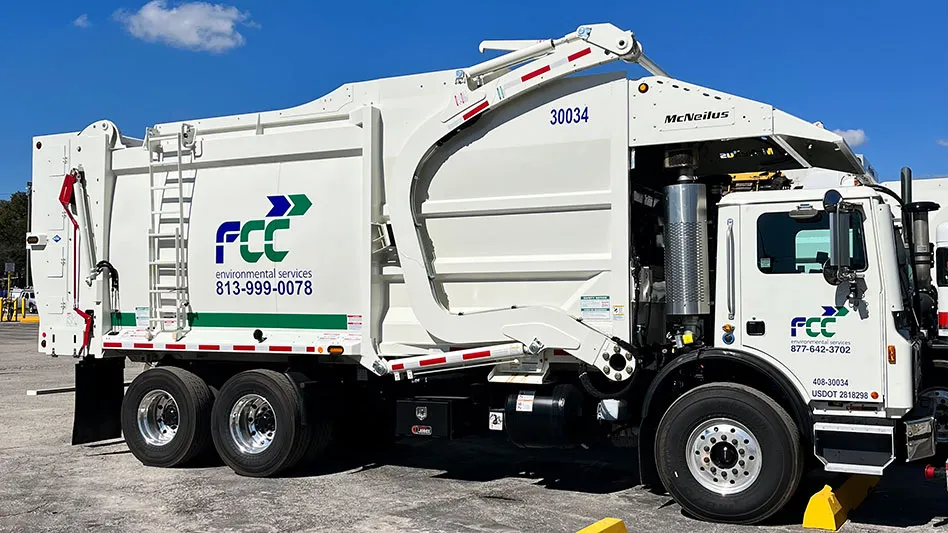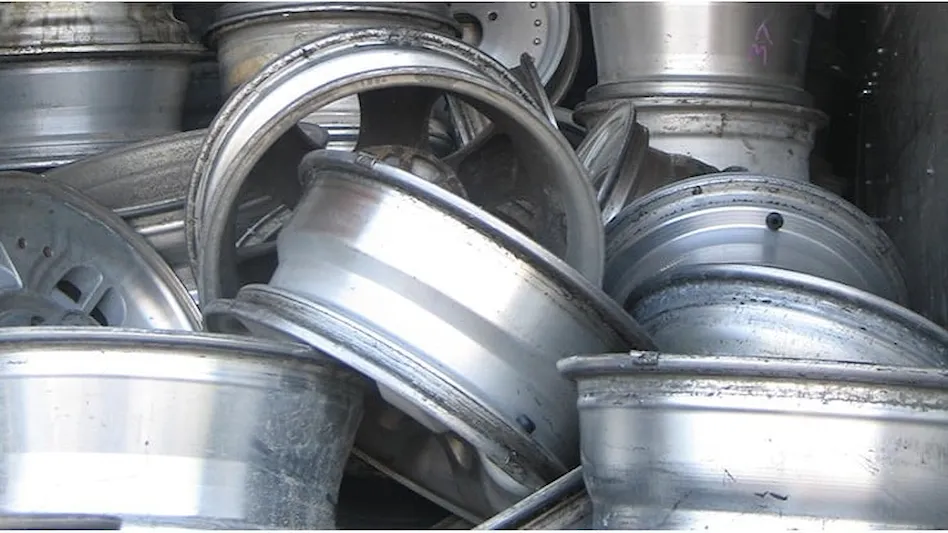
Photo by Recycling Today staff.
For several decades, the Washington-based Institute of Scrap Recycling Industries (ISRI) has conducted a semantics campaign to stress that scrap is not waste and that recyclable materials are secondary commodities.
This publication has been a steady supporter of this message, with its editorial staff trying earnestly not to use the word “waste” interchangeably with scrap, secondary commodities or other words that convey many discarded materials have value. (My colleague DeAnne Toto stated the case perfectly just this July.)
Despite considerable successes to this campaign’s credit, ISRI reportedly is considering changing or updating its phrasing concerning recyclable materials and how to best distinguish them from landfill- or incinerator-bound waste.
A suggestion from this corner is the term “circular commodities.” Like the word “sustainability,” the phrase “circular economy” seems to have staying power and to be recognized as a good thing by people and governments around the world.
Unfortunately, the terms “scrap” and “secondary commodities” each have shortcomings. In many peoples’ minds, something that is scrapped is being written off. In those same minds, something secondary could be considered second rate.
A circular commodity label fends off these connotations. Gaining unanimous backing for any policy is an unlikely prospect. In the current climate, however, sustainable and circular policies tend to gain considerable support.
The rephrasing is by no means a panacea. Governments and policy advocates who want to restrict trade in and financial support for circular commodities (for perceived environmental or protectionist reasons) will continue to do so.
Circular commodities in 2021 are establishing new and higher price benchmarks, including in the oft-criticized plastics recycling sector. That has not stopped recycling critics from staying on the attack. China has prohibited many circular materials despite the fact their residue levels are significantly below those of metal ores or concentrates. Malaysia may essentially follow China’s lead.
Advocacy for keeping raw materials closer to home also is a trend gaining momentum around the world. It must be noted that rephrasing alone will not stop all policies or corporate decisions made in the wider economic and policy arenas.
A form of linguistic high ground, however, could be a welcome result of a term such as circular commodities. Making a public case against materials circularity—reuse and recycling and the resource conservation it entails—becomes trickier than lobbying against waste, scrap or secondary materials.
To those of us in the industry, all those terms may mean the same thing, and we’re comfortable with the old terminology. In the policy arena, though, words are twisted and manipulated, and recyclers and traders seem to be in need of some keener phrasing.
Latest from Waste Today
- AMCS showcasing Performance Sustainability Suite at WasteExpo
- New Way and Hyzon unveil first hydrogen fuel cell refuse truck
- NWRA honors award recipients during annual breakfast at WasteExpo
- Rubicon selling fleet technology business, issuing preferred equity to Rodina Capital
- Machinex to feature virtual tour of Rumpke MRF at WasteExpo
- Reworld releases 2024 sustainability report
- Novolex invests in Ozzi
- Routeware to unveil product updates at Waste Expo
